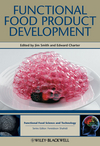Everyday Aloe -- July 2007

What is the most-used herbal ingredient across cultures? The answer may be surprising: aloe. Not just for sunburns anymore, aloe is rising in popularity in the U.S. as a drink to promote wellness. Aloe has shown steady growth over the past seven years in the health food market and has consistently ranked in the top 20 best-selling herbs during this time. In the Hispanic foods section of the mass market, aloe drinks are showing over 100% growth annually. Asian and Hispanic grocers in the U.S. are selling fresh aloe leaves, and many high-end health food stores, such as Whole Foods, carry the fresh aloe leaf in their produce section.
Aloecorp, a global leader in the growing, processing and science of aloe vera, is changing the perception that liquid aloe is a better option than the powdered product. They have introduced Qmatrix®, a process that extends aloe shelflife without preservatives and retains a “same as fresh” quality on reconstitution. Qmatrix aloe also has excellent dispersion and dissolution properties, something that other dry aloes do not. Qmatrix processed powder can be sized to a 10-mesh with a crystal flake appearance; it immediately disperses when added to water; and it goes into solution without clumping.
The Qmatrix processing technology is the result of the last decade of aloe research. In 1999, in Planta Medica and in 2004, in the journal International Immunopharmacology, the retention and enhancement of aloe bioactivity was found by the patented modified aloe polysaccharide (MAP) process. A proprietary dehydration process was added to this that can be characterized as low heat, short time (LHST) and has been proven to retain a higher level of heat labile components and sensory attributes, when compared to any other dehydration technology available. In fact, in blind taste tests, testers could not tell the difference between fresh and reconstituted fresh food products dehydrated by this technology.
According to Ken Jones, chief science officer for Aloecorp, “The sensory attributes of the finished product are also improved, as the need for vigorous and extensive mixing is eliminated. It also allows formulation innovations such as dry mixes or drinks in packet form that completely dissolve.” Aloecorp has performed tests to guarantee a “same as fresh” bioactivity of the new processed powder.
Jones adds, “Most people are familiar with aloe as a dietary supplement or its use in cosmetics; what they don’t realize is that aloe is an approved food additive for use as a flavoring agent, so there is a lot of opportunity for formulation in nutraceutical and conventional foods.” Another misconception, he explained, is that aloe is a dangerous plant or laxative. However, on the market, aloe products in food or supplement form are processed to eliminate the anthroquiniones (the laxative components) to establish safety levels appropriate for daily use.
For more information:
Aloecorp Inc., Lacey, Wash.
Barbara Apps, 800-458-ALOE (2563); 360-486-7400
info@aloecorp.com, www.aloecorp.com
Looking for a reprint of this article?
From high-res PDFs to custom plaques, order your copy today!




